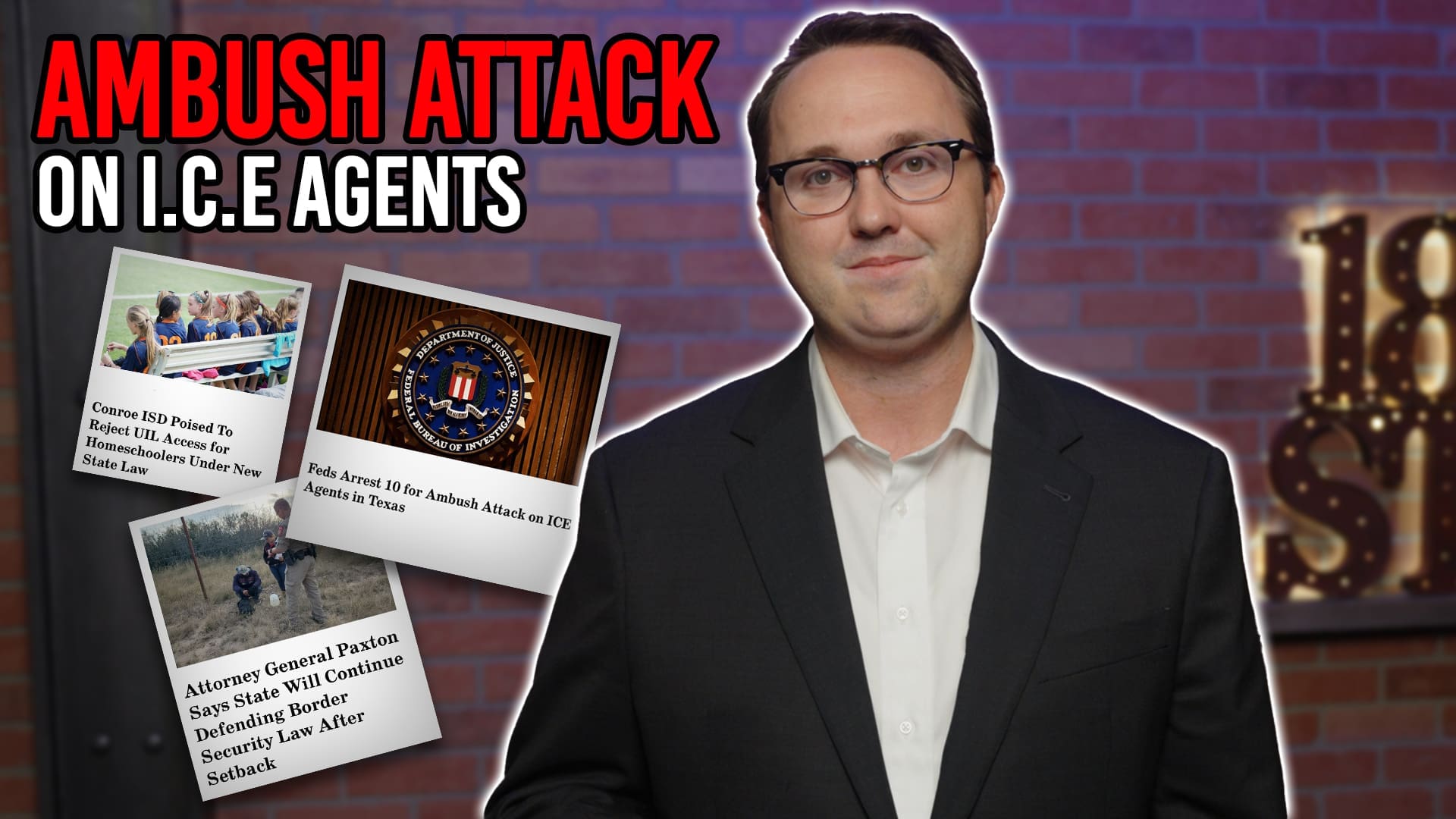After taking heat over the past few days over his efforts to hide his past as a Washington labor union lobbyist, Dan Branch went on the Texas Tribune’s TribLive yesterday to attack his conservative opponent, State Senator Ken Paxton. During his conversation with Tribune editor Evan Smith, Branch was asked about his support for Senate Bill 346, legislation from last session which was designed to enable bureaucrats to attack donors to conservative organizations while exempting liberal labor unions from the same rules.
Branch argued that voters need to ask themselves who, between him and Senator Paxton, “understands legal reasoning the best.” If Branch’s answer on his support for SB 346 is any indication, voters who heed Branch’s advice should be fleeing to Paxton’s camp in droves.
Evan Smith: “What about ‘dark money’ — so-called ‘dark money?’ This is a very present controversy now. Should organizations be forced to expose the source of their fundraising?
Dan Branch: “Yeah, I voted for that bill.”
Evan Smith: “So you would still be for …”
Dan Branch: “Yeah!”
Evan Smith: “… greater disclosure of so-called ‘dark money?’”
Dan Branch: “I’ve always been for more disclosure.”
Branch then launched into another attack on Senator Paxton before Evan Smith brought him back to the issue of speech-suppression legislation.
Evan Smith: “You would be for some sort of legislation to require greater disclosure of so-called ‘dark money.’”
Dan Branch: “Absolutely. Because, I’m for private groups that want to be private. That’s … I believe in the first amendment. That’s a different issue. The issue here is if people want to get so involved in the public square and involved in elections then we have campaign finance laws to make sure everyone knows who’s supporting who and, just like we do with government, we have to have open government and we have to have an open electoral process.
Branch’s reasoning echoed that of State Representative Byron Cook — Straus’s current standard-bearer when it comes to attacking conservative speech — in an interview with the San Antonio Express News last week. In that interview, Cook argued that “the voting public has a right to have a greater understanding of who supports candidates and why.”
Of course everyone who stops for a moment and thinks about that statement knows it isn’t true. The government isn’t empowered to give everyone who supports a candidate a latex-gloved inspection as to why. In fact, the right runs in exactly the opposite direction; citizens have a right to withhold whom they are supporting, or if they openly support someone, why they choose to support them.
Branch even took advantage of that right during his exchange on TribLive. After being asked whether he would vote again to reelect Speaker Joe Straus if he were returning to the legislature, Branch refused to answer the question. (Of course, every informed person knows he would.) Miffed, Evan Smith then asked Branch who he was backing in the Lieutenant Governor’s race. Branch’s response? “I think I should keep that to myself,” he answered. “Isn’t that the American Tradition?”
That wasn’t the only time during the interview — an interview in which Branch was more than willing to support audits of citizens who “get involved in the public square and in elections” —that Branch instinctually backed away from greater “transparency” for himself.
Representative Branch was asked whether he supported legislation that would require legislators to disclose the contracts that they and their family members have with government entities. Unsurprisingly, Branch avoided the question, having walked a vote on the very subject during the last legislative session. To answer, Branch talked about how he has “got a lot of childrens [sic]” and how burdensome it is to disclose all of their business enterprises on his personal financial disclosures.
Branch then launched into an attack on the “transparency” measure for legislators that could, ironically, just as well be used in opposition to the phony “transparency” language related to speech suppression legislation like SB 346.
“Someone can make the claim — use the word transparency and always use that as somehow — are you for more transparency? Well, we’re all for it. We’re all for motherhood, apple pie, right. With mother’s day coming up. You can’t use that as a weapon. We ought to be for more disclosure, more transparency. I have a long record of that.”
Dan Branch clearly knows how burdensome government paperwork can be. He’s fought transparency for his past as a Washington lobbyist for labor unions. He’s fought additional disclosure for his and his family’s contracts with government agencies. When asked who he’s voting for this election, he, rightfully, responds that it is an “American tradition” that he not be required to say. And even in his rambling response to questions about his own transparency, he recognizes that “transparency” can be weaponized when the principle is used to violate the rights of others.
Yet Dan Branch persists in equating the rights people have to inspect the actions of their government officials with rights he would like to create for people to inspect those who become “involved in the public square.” This, however, runs contrary to our constitutional rights as Americans, and, frankly, the comparison just doesn’t make any sense.
We demand accountability from government officials because they have the power of the sword. Government officials can take our land, our money, and ultimately our lives in exercising their power. That is why it is so critical that we know how and why they are exercising that power, and whether they are exercising it in our interests or in their own.
Citizens who become “involved in the public square” can do nothing more than speak and persuade. More money merely equals a bigger megaphone.
Equating “open government” measures with campaign finance regulations leads to some absurd results. Would Branch think it’s acceptable — as part of an “open electoral process” — to allow any person to demand of the members of a private group to see all of their emails or their calendars on a ten-day turnaround? We require elected officials to comply with that requirement as part of “open government” through the Public Information Act. What about requiring every meeting here at Empower Texans to be recorded and posted on the internet, like we require government agencies to do under the Open Meetings Act? Of course not!
The Supreme Court has been clear that the justification for “campaign finance regulation” is to eliminate corruption and the appearance of corruption. That is why the Court has approved of campaign contribution limits and bans on corporate campaign contributions. In those cases, there is a politician to be corrupted. On the other hand, the Court has struck down rules that sought to limit speech on issues — because you simply can’t corrupt a ballot proposition — and has, recently in Citizens United, confirmed that the constitution protects the rights of organizations to speak out independently on elections. Again, when the speech is independent, there simply isn’t the possibility of quid pro quo corruption.
On Wednesday Federal Election Commission Chairman Lee E. Goodman confirmed that the establishment left is working to prune back the “media exemption” to federal campaign finance laws. They are doing so, Goodman says, because they see the rise of citizen-driven media as a threat to the old left-wing media monopoly. New rules proposed by the Democrats on the FEC would allow the left to regulate websites like The Drudge Report and radio programs like Sean Hannity’s, putting those groups under a reporting burden and a government microscope.
Goodman’s warnings make it clear that there is a national effort afoot to use government to suppress conservative speech. If Dan Branch cannot understand the legal reasoning behind campaign finance regulation, and why he can’t create a right to peek behind the curtain of every group that enters “the public square,” then he is ill-qualified to represent Texans in the fight for our rights against the Obama administration. This is a high-stakes contest for the future of freedom, and we simply cannot trust Dan Branch and his flawed legal reasoning. Conservatives must unite behind the principled conservative with the proven record, Senator Ken Paxton.




